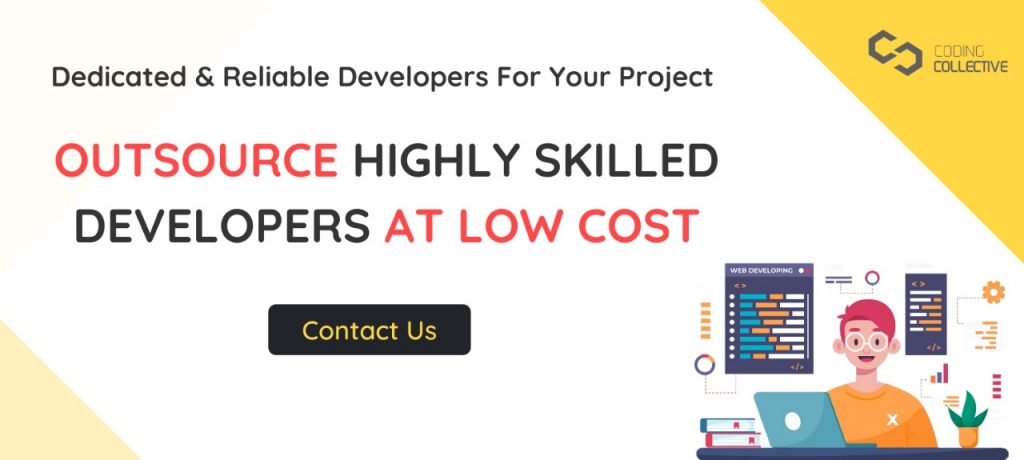
Unlike some other professional jobs, the demand for software developers is very high. As they operate the main engine room of any organization’s software section, they contribute significantly to a company’s growth by extension.
To hire the right software developer, you must follow a robust hiring process designed to source the person with the correct skillset and desirable personal characteristics that allow for a harmonious working relationship. Software developers bring a company’s business to the next level of integration. Similarly, they help improve sales and revenue by developing channels to allow customers to reach an organization’s product and services efficiently. And finally, they’re at the forefront of future-proofing a company, ensuring the latest techniques and tools are being used to propel the company’s tech forward. Here are the top technical skills you need to look for while hiring:
1. Data Structures & Algorithms
Data Structures and Algorithms are two of the most crucial technical skills most companies look for when hiring software developers. A developer’s efficiency in Data Structures and Algorithms is directly related to their problem-solving ability and coding skills. Software developers often fail to understand the importance of Data Structures and Algorithms in the early stages of their careers. But as you progress in your career, you’d realize how important it becomes when your code starts taking too much time or too much memory in the system.
2. Artificial Intelligence (AI)
AI is rapidly changing the landscape of work and is a highly sought-after skill. The increased popularity of AI and machine learning and its promise to automate everyday tasks means you should hire professionals with these skills and expertise. According to a report, 49% of companies are currently exploring or planning to use machine learning.
3. Cloud Computing
Companies, small and large, and from various domains are now moving toward cloud services as they provide cost-effective infrastructure with improved scalability and flexibility options. This means any professional you hire, will eventually work with cloud computing if not already well versed with cloud-based applications. Being familiar with and having hands-on experience in any of the top cloud platforms like Microsoft Azure, Amazon Web Services, and Google Cloud Platform will be skills you look for, especially during interviews.
4. Source Control
Source control management (SCM) is a system that helps a software development team track updates and changes to a program’s coding language. It allows each developer an opportunity to work on the code separately, then merge their efforts into one version. SCM systems can generate a list of code revisions and help you restore a language to a previous state if necessary. It is a necessary skill to know how to use a type of SCM system, as companies often require software developers to work in teams on the same coding projects. While hiring a developer, you need to be aware of their SCM skills.
5. Version Control Tools
A software developer needs to be adept with version control tools like Git and SVN. Git and GitHub have streamlined the market to a great extent. Over 70% of the companies use Git. When hiring, make sure you know how well the candidate understands the advanced version control concepts such as branching and merging, as well as the command line and the GUI.

6. Operating System Knowledge
Different OS work in different ways, so your developers should understand the nuances of each one. This is a key skill as it will often change the requirements, challenges, and opportunities involved in a development project. The three essential OS developers need to know are – Linux, Windows, and Mac. However, if your company’s technical projects are designed for mobile or tablet devices, developers will also need to be familiar with Android and iOS. Understanding the differences between OS is crucial to the developers as they need to know whether the OS is playing a role in their project, which will help identify and solve issues.
7. Integrated development environment (IDE)
IDEs allow developers to write, modify, compile, run and debug their codes. Hence, they play a vital role in developing technical projects and are fundamental for ensuring high quality and consistent code. IDEs improve the code quality, speed up the development, and help maximize the value of the developer’s result. Therefore, whatever development language technical professionals use, they must be familiar with the relevant IDE.
8. Database & SQL
Working with databases is a fundamental part of any developer’s role. They need to know how to store, create, insert, update, and delete records when required. Your potential candidate needs to know how to work with multiple SQL queries. This may be vital as most companies, including yours, will often be running different databases like- Oracle, MongoDB, Redis, Cassandra, etc.
9. Programming Languages
As a software developer, you need to know at least one of the following programming languages — C, C++, C#, Java, Python, or JavaScript. Scripting languages make it easier to create tools and scripts to solve frequently occurring programming problems. You must be assured that your potential hire has a good grasp of scripting languages such as Python. Since programming is constantly evolving, developers need to grasp new techniques, best practices, and technologies quickly on their own. Therefore, to be a perfect fit for your organization, candidates need to excel in at least one programming language in depth.
10. Containers
Docker and Kubernetes are some of the most important container tools every software developer is expected to know. Containers help developers test their applications in a unified environment but also make the deployment process easier.

11. Testing Methods
Every software program requires an intricate testing process before a company can release it to consumers. It involves using a series of digital tools to ensure that a product functions and fulfills its design requirements. It also involves checking a program’s ability to function on different hardware devices and store confidential information. As companies often design their testing processes based on a few critical components, it is necessary for a software developer to understand fundamental aspects before applying to job positions.
12. Cryptography
Cryptography is a method of obscuring confidential data using an encryption code or password, often called a key It involves using an algorithmic formula to develop a corresponding decryption code, which can reveal the original data to a user. Software developers often use encryption techniques to prevent external agents from learning information about a product. Ensure how well aware a developer is of encryption before hiring.
13. Debugging
Debugging is a software development process to address and remove errors in a program’s coding language. It involves running a program through specialized software to observe each error carefully, then using problem-solving skills to determine which part of a code caused it to occur. Many software developers debug their code while writing it to better ensure it’s functional in the testing stage. It’s important for a developer to know how to correct and debug their code and solve the errors in programming.
14. Networking
In 70-80% of cases, the developer’s work or application is based on the client-server model, where the request goes through the network to a server and the client can be based anywhere in the world to access the application. Understanding basic networking is important for developers to develop and support an application. If the architecture wouldn’t designed properly it can create HTTP request issues over the network. In a client-server architecture, a user or a client POST request via the internet is received by the server and after processing the data request the response is sent back to the client. Today in most applications like web-based, online games, business automation, or cloud computing client-server architecture is used. Therefore, before hiring get an idea of how well versed your candidate is on networking basics.
